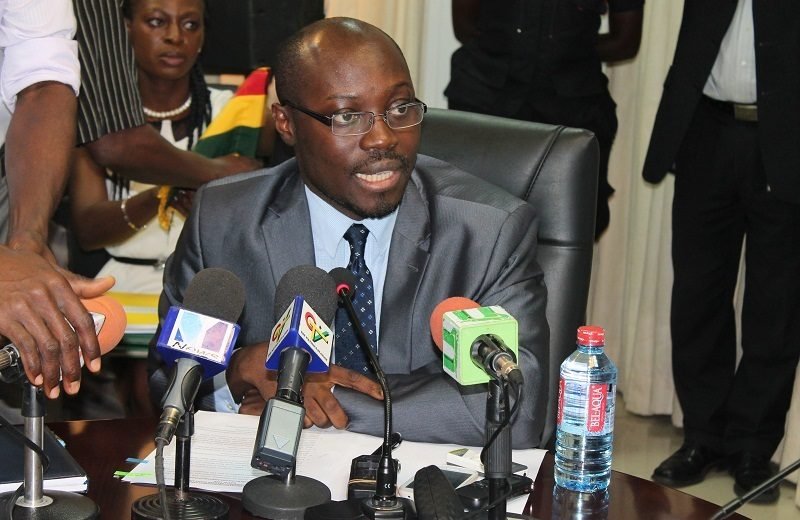The opposition National Democratic Congress (NDC) has accused the Akufo-Addo of mismanaging the Ghanaian economy.
Delivering a lecture at the party’s ‘policy dialogue on the economy’ Monday, Ranking Member on the Finance Committee of Parliament Dr. Cassiel Ato Forson said political considerations are making it difficult for government to take remedia measures to save the economy.
“It is now beyond debate, based on the data presented, that the Akufo-Addo/Bawumia government has completely mismanaged the Ghanaian economy and lost control of key economic indices.
“Political considerations are preventing the Akufo-Addo/Bawumia government from taking vital remedial measures to avert total collapse of the Ghanaian economy in just over a year,” he said
He noted: “The people of Ghana need to ask questions and elicit candid disclosures and actions from the Akufo-Addo/Bawumia government to prevent imminent disaster
“We urge the government to demonstrate seriousness in resolving these major problems by announcing convincing measures in the mid-year budget review”.
On debt sustainability, the Ajumako Enyan MP said: “The Debt Sustainability ratios portray a worrying picture of the Sustainability of Ghana’s Debt and should be of great concern to Government. The IMF Debt Sustainability Analysis (DSA) in 2019, put Ghana at High Risk of Debt Distress. This was before Covid-19. The situation worsened by the end of 2020. With the planned borrowings in 2021, the situation is likely to deteriorate further.
“Comparing the debt sustainability indicators in 2020 to those in 2001, when Ghana was declared HIPC, it is clear the 2020 indicators are worse than those of 2001. Even though Ghana has not been declared HIPC by the Bretton Woods Institutions (BWIs), the debt sustainability indicators clearly show that Ghana is a Heavily Indebted Poor Country (HIPC)”.
According to him, “Government may find it difficult to increase public sector wages, just as it failed to increase public sector wages to the minimum level of inflation in 2021. Government will spend more on interest servicing. International Reserves will go down due to huge outflows of foreign exchange (forex) to service debt very little inflows of forex from borrowing since there will be very little fiscal space to borrow. Low economic growth driven largely by low public investment and distortionary tax policies aimed at correcting the fiscal imbalance.
Ghana’s public debt stock shot up by ¢27.8 billion in April 2021 and May 2021 to ¢332.4 billion, the latest Summary of Economic and Financial Data by the Bank of Ghana has revealed.
This is equivalent to $57.9 billion, about 76.66 percent of Gross Domestic Product.
Source: Ghana/Starrfm.com.gh/103.5FM




